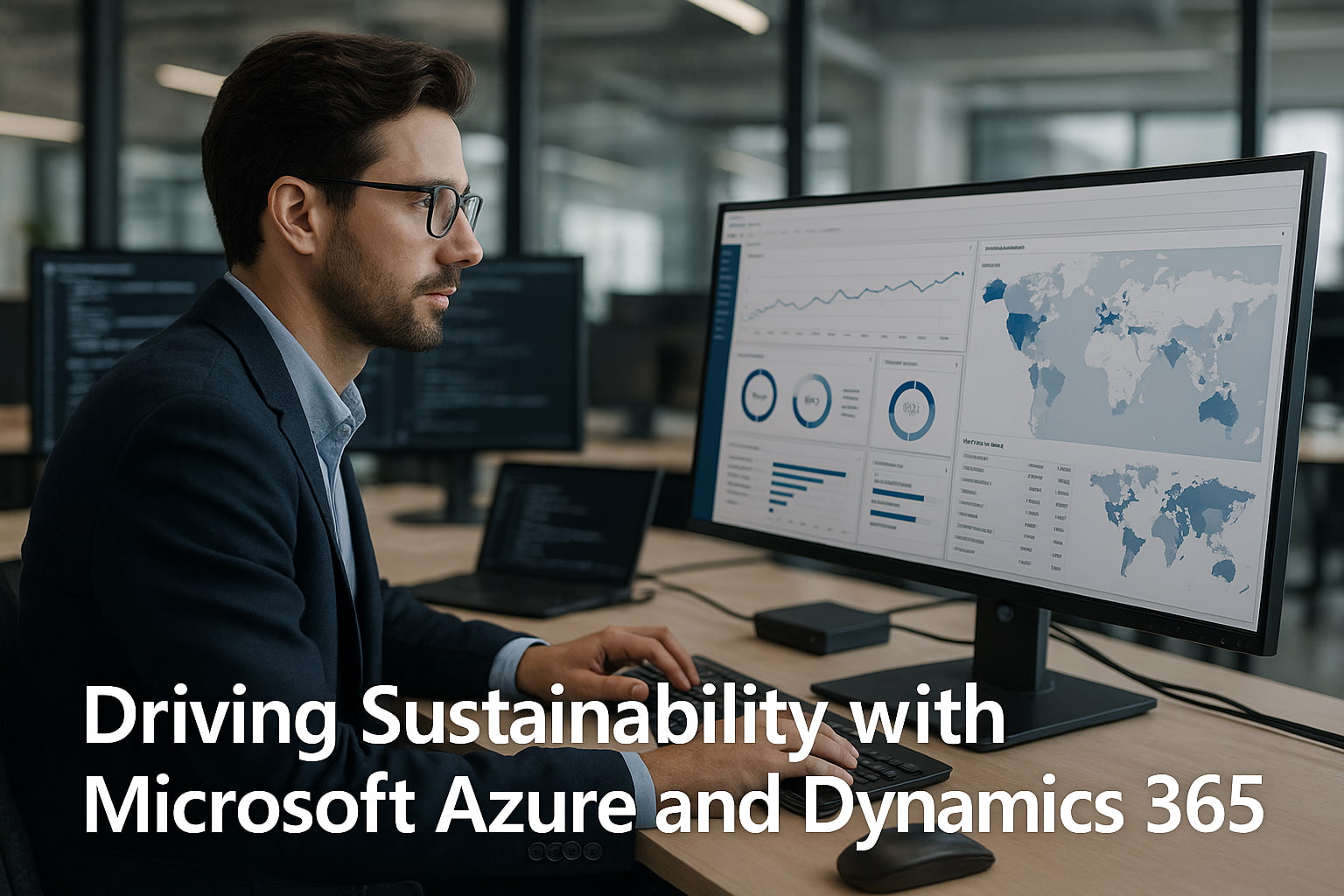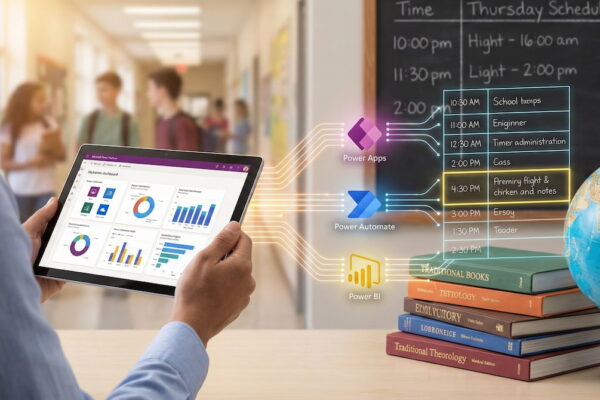Driving Sustainability with Microsoft Azure and Dynamics 365
A Strategic Approach to Carbon Tracking, ESG Reporting, and Supply Chain Responsibility
Sustainability is no longer a corporate buzzword—it’s a business imperative. As regulations tighten, consumer expectations evolve, and climate concerns grow, organizations are under pressure to prove their environmental and social accountability. From carbon tracking to ESG compliance and responsible sourcing, companies are now expected to not only operate efficiently but also ethically.
Microsoft Azure and Dynamics 365 offer powerful tools to help organizations embed sustainability into their core operations. Together, these platforms enable data-driven decision-making, streamline reporting, and support greener, more resilient supply chains.
Carbon Tracking Made Actionable
One of the key steps in building a sustainability strategy is understanding your carbon footprint. Microsoft Azure provides advanced tools that allow businesses to collect, monitor, and analyze emissions data across scopes.
Azure Sustainability Manager, built on the Azure cloud platform, centralizes emissions data from across the enterprise, including data centers, offices, logistics, and even supplier networks. It provides:
-
Real-time emissions insights by region, product line, or department
-
Automated data ingestion from ERP, IoT, and third-party systems
-
Custom dashboards for leadership and compliance teams
-
Forecasting and scenario planning for emission reduction strategies
This seamless integration with Dynamics 365 ensures that carbon accounting is not a siloed effort but a business-wide capability embedded into daily operations.
ESG Reporting and Regulatory Compliance
Environmental, Social, and Governance (ESG) reporting is no longer voluntary for many global enterprises. Investors, regulators, and customers demand transparency—and timely, accurate disclosures are critical.
Dynamics 365 Finance and Microsoft Cloud for Sustainability enable organizations to streamline ESG reporting through:
-
Pre-configured reporting frameworks (e.g., GRI, SASB, CSRD, SEC)
-
Automated data collection from across business units
-
Audit trails and assurance-ready documentation
-
AI-driven insights to spot ESG risks and improvement areas
By unifying financial and non-financial data in one place, companies can eliminate spreadsheet sprawl and manual reporting. Azure AI and machine learning capabilities enhance ESG risk analysis by identifying trends and anomalies that may not be visible through traditional reporting tools.
Sustainable Supply Chain Management
Sustainability extends well beyond internal operations. It includes upstream suppliers, logistics partners, and the entire product lifecycle. Microsoft Dynamics 365 Supply Chain Management supports responsible sourcing and sustainable logistics through:
-
Supplier scorecards and sustainability metrics
-
Visibility into tier-1, tier-2, and tier-3 supplier networks
-
Inventory optimization that reduces waste and overproduction
-
Carbon footprint tracking for raw materials and finished goods
-
Demand forecasting that aligns production with actual consumption
Azure IoT and Digital Twins add further value by enabling real-time monitoring of assets, energy consumption, and transportation emissions. This helps businesses proactively identify inefficiencies and drive green initiatives across the value chain.
Real-World Use Cases
Leading organizations across industries are already leveraging Microsoft’s sustainability solutions:
-
Manufacturers use Azure and Dynamics 365 to monitor energy use across factories and implement predictive maintenance that reduces waste.
-
Retailers integrate carbon tracking into product lifecycle management, enabling eco-labeling and carbon-neutral shipping options.
-
Healthcare providers rely on automated ESG dashboards to align with global reporting standards and reduce emissions across their operations.
-
Logistics and transportation firms use Azure-based data models to optimize routes and reduce fuel consumption.
These capabilities are not limited to enterprise giants—mid-sized businesses can also deploy scalable sustainability solutions without heavy upfront infrastructure investments.
Why It Matters Now
The shift toward sustainability is not a future trend—it’s happening now. Governments around the world are introducing mandatory carbon reporting frameworks. ESG ratings influence investment decisions. And consumers are increasingly choosing brands that align with their values.
By leveraging Microsoft Azure and Dynamics 365, businesses can:
-
Stay ahead of regulatory changes
-
Improve brand trust and customer loyalty
-
Drive operational efficiency and cost savings
-
Mitigate environmental risks and future-proof operations
Sustainability is no longer just about compliance—it’s about competitiveness.
Conclusion
Integrating sustainability into your ERP and cloud infrastructure is not just good for the planet—it’s smart business. Microsoft Azure and Dynamics 365 provide the technological foundation for a transparent, measurable, and impactful sustainability strategy.
At Zerone HiTech, we help organizations unlock these capabilities with customized implementation and consulting services. Whether you’re just beginning your sustainability journey or scaling an existing program, we’ll ensure your Microsoft ecosystem is aligned with your goals.
Let’s build a sustainable future—starting with smarter systems today.




